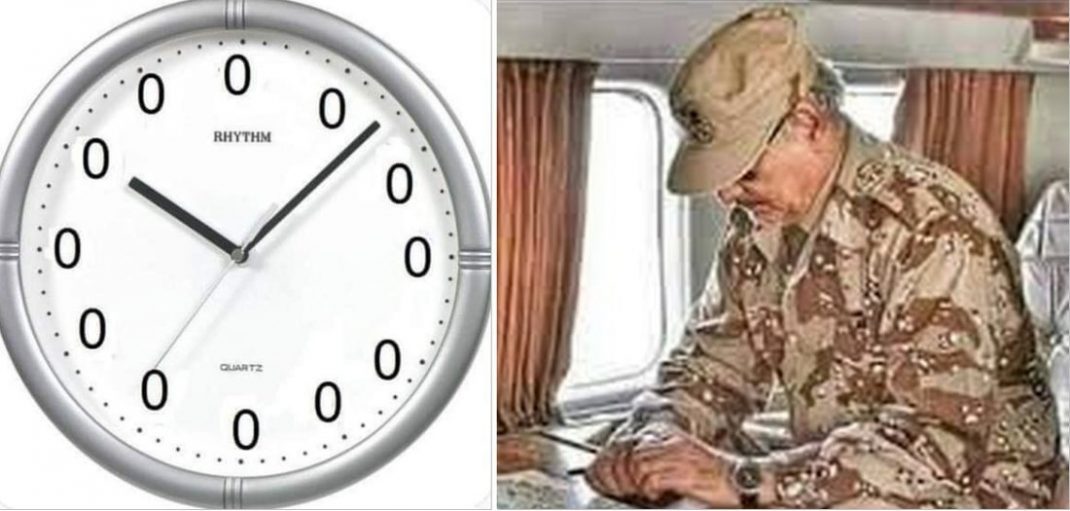By Sebastian Rees
 On September 9, Libya’s internationally recognised Government of National Accord (GNA) carried out a series of targeted air strikes on forces aligned with Khalifa Haftar’s Libyan National Army (LNA).
On September 9, Libya’s internationally recognised Government of National Accord (GNA) carried out a series of targeted air strikes on forces aligned with Khalifa Haftar’s Libyan National Army (LNA).
The casualties recorded from these strikes revealed that Mr Haftar has been looking far further East than Tobruk in his search for military support.
Amongst the recorded dead were 8 Russian fighters linked to Wagner PMC, an infamous Russian private military contractor which has allegedly sent hundreds to fight in Libya.
The involvement of Wagner in Libya speaks to the grim realities of the country’s ongoing crisis, which has resulted in tens of thousands of casualties, precipitated mass forced displacement of populations and left Africa’s once wealthiest state economically ruined.
As Libya enters its sixth year of civil war, violence shows no sign of abating as regional and international powers vie for influence. Though few foreign states have an official on the ground presence, they often work through the murky channels of private military contractors and well-armed local proxies.
Since 2014, Libya’s Middle Eastern and North African neighbours have sought to push their own regional ambitions in the conflict-ridden nation.
Saudi Arabia and the UAE, whose post-Arab Spring foreign policy has centred on empowering authoritarian, anti-Islamist leaders in the region have provided significant support for Mr Haftar, who has increasingly positioned himself as carrying out a campaign against Islamist extremism in the region.
The UAE has allegedly violated the United Nations Security Council’s arms embargo to provide Mr Haftar with military equipment including Chinese drones and flown sorties useful for the LNA’s operations.
Saudi Arabian and Emirati media outlets and social media accounts have waged a propaganda war of their own to reduce international support for Libya’s UN recognised Government in Tripoli.
Hoping not to be outfoxed by their regional rivals, Turkey and Qatar have intervened to support the GNA.
Turkish made drones have been used by the GNA’s armed forces, and persistent rumours exist that Turkish personnel are providing logistical support on the ground in campaigns against the LNA.
Qatar has played an important financial role in keeping the Tripoli based government financially solvent. Though a primarily strategic, alliance building logic underlies the involvement of regional actors in Libya’s conflict, all spy lucrative opportunities in the oil rich country, hoping that their support will be rewarded handsomely when peace returns.
Yet it is not just the states of the Middle East and North Africa which are playing a decisive role in the conflict. Russia too has sought to increase its influence in Libya.
Andrey Chuprygin, a Senior Lecturer at Moscow’s Higher School of Economics, argues that Russia’s interests in Libya are multifarious. An increasing Libyan presence would help bolster Russia’s bids to play an increasing role in the Mediterranean, provide access to the Sahel and Central Africa, and provide opportunities for Russian firms in Libya’s lucrative oil and gas sector.
Russia’s energy giant Rosneft signed a deal to purchase oil from Libya’s National Oil Corporation in 2016 and Russian companies are interested in constructing a railway linking Sirte and Benghazi to bolster Russian influence on the Mediterranean.
Yet Russia also seeks to develop increasing political power in North Africa, presenting itself as a reliable partner in the region. As Mr Chuprygin notes, Russia hopes ‘to show that it never leaves its allies in the long run’ and present a ‘strong man saviour image’ at home.
Though Russia has provided considerable support to Mr Haftar, as is often the case, it is adopting a hedging strategy- maintaining relations with the GNA.
Though Russia officially denies that it maintains forces in North Africa, military contractors close to Vladimir Putin’s government can further Russia’s interests in the conflict whilst maintaining a safe distance from the regime.
Using private military contractors allows Mr Putin to lower the political costs of achieving his goals in North Africa. Using such groups avoids the political scrutiny that comes with the deployment of conventional armed forces.
Where private military contractors enhance Russia’s prestige abroad, the state can acknowledge and take credit for their actions; where they do not, the state can distance themselves. A relationship of plausibl
Wagner PMC, whose presence in Libya has been well documented since early September has played a key role in advancing Russia’s foreign policy instances since it emerged in 2014.
The group is headed by a former Ukrainian soldier who fought alongside Russian backed Ukrainian separatists in Donbass.
Its CEO, Yevgeny Prigozhin, is a close personal confidante of Mr Putin – a company owned by Mr Prigozhin is the official caterer for the Kremlin, leading to Mr Prigozhin’s popular moniker ‘Putin’s Chef’.
Though Messrs Putin and Prigozhin retain close relations, as Mr Chuprygin notes, ‘There is no relationship between the state per se and Wagner.
As long as Wagner serves purposes of certain businesses close to the top, they are tolerated and modestly supported.’ This ill defined relationship allows the group to operate relatively autonomously of government control.
Wagner troops became a crucial component of Russia’s security provision in Syria, guarding energy and military facilities for the Assad regime and supplying forces for the Battle of Palmyra in 2016.
Prigozhin’s Evro Polis firm signed a contract with the Syrian state-owned Petroleum Corporation in January 2018, granting Evro Polis 25% of the output from any petroleum facilities retaken by forces loyal to Mr Assad.
Wagner forces have been known to operate across Africa, securing lucrative logistics and security contracts in the Central African Republic and Sudan.
Yet it appears that Libya is key to the group’s plans in the near future. Mr Haftar met with Mr Prigozhin in November 2018 and group operatives were first reported to be in Libya in March as preparations were hatched for the LNA’s assault on Tripoli.
Since that time, Wagner PMC has expanded its logistical and military role in the conflict, moving forward from the LNA’s Jufra base to deploy troops to the outskirts of Tripoli.
The increased privatisation of Libya’s war through the involvement of Private Military Contractors augurs badly for an end to hostilities in the country.
Lacking accountability, retaining a murky relationship with state power and thereby international law, and securing financial benefits on the basis of continued involvement in the conflict makes for an alarming situation.
***
Sebastian Rees is a journalist and researcher currently based in Sydney. He is a recent first class graduate in History and Politics from the University of Oxford, specialising in Imperial and Global History and the politics of the contemporary Middle East.
___________
albawaba




